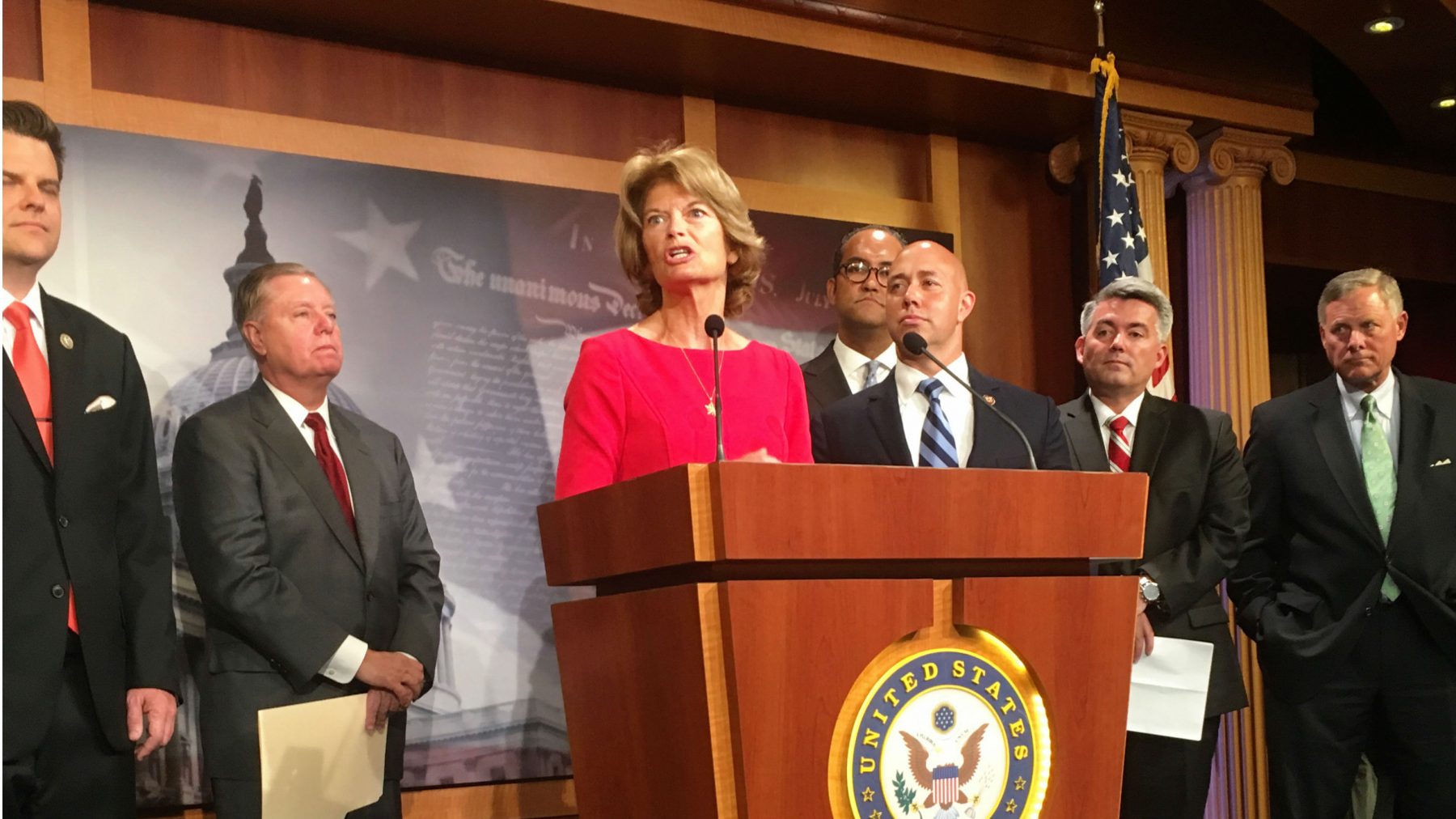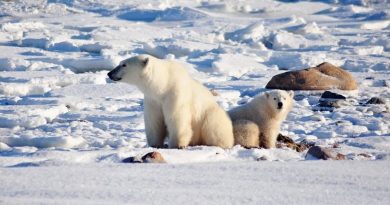U.S. Republicans want to show their green side… without talking climate

U.S. President Donald Trump and Republicans in Congress want you to know: Republicans care about the environment, too. That was the message from events this month, at the White House and the U.S. Capitol. But climate change wasn’t high on the Republican list.
President Donald Trump spoke about the environment at a formal White House event.
“From day one, my administration has made it a top priority to ensure that America has among the very cleanest air and cleanest water on the planet,” he said. “We want the cleanest air. We want crystal-clean water, and that’s what we’re doing and that’s what we’re working on so hard.”
Some analysts said it shows Republicans are worried about losing younger voters, and suburban women. But President Trump barely mentioned the biggest environmental issue worldwide: climate change.
On Capitol Hill a few days later, like-minded Republicans to plant their own green flag, telling reporters that Democrats don’t own the issue.
“Y’all ready out there? OK, I’m Sen. (Lindsey) Graham from South Carolina. I’m here to announce with my colleagues the formation of a bicameral Roosevelt Conservation Caucus.”
As Graham put it, “I’m tired of playing defense on the environment.”
Sen. Lisa Murkowski, R-Alaska, was on stage with Graham.
“There is a strong story that comes with leadership over the decades when it comes to conservation,” she said. “Unfortunately, as Republicans oftentimes we don’t talk about it enough.”
The Roosevelt Caucus Republicans talked about protecting special places, managing forests, maintaining parks and improving access to public lands. Like the president, at their press conference, they hardly spoke of climate change.
But elsewhere on Capitol Hill last week, climate change did take center stage, with an emphasis on making the issue bipartisan.
“I’m here before you to say I was wrong in 2001,” said Republican pollster Frank Luntz. He used to advise Republicans on how to avoid taking action on climate change. (He suggested denying there’s a scientific consensus.) But he’s changed his mind. A 2017 wildfire that forced him to evacuate his L.A. house helped bring the issue home for him.
“Rising sea levels. Melting ice caps. tornados and hurricanes more ferocious than ever — it is happening,” Luntz said, speaking at a climate change hearing organized by Senate Democrats.
“I’ve changed, and I will help you with messaging,” he told the Democrats who attended. “But in return you have to put policies ahead of politics. You have to make the commitment not to make it partisan.”
Is carbon dividend a solution?
One policy discussed at the hearing is called a carbon dividend: The government would tax carbon emissions, but instead of keeping the revenue, the money would be divvied up among Americans. By some estimates, the cost of gas would go up 36 cents a gallon, but a family of four would get $2,000 a year in dividends.
The plan is coupled with removing other carbon regulations. Among those lobbying for it are major oil companies: Exxon, BP, Conoco and Shell.
And some college Republicans, like Harvard senior Kiera O’Brien, originally from Ketchikan. She told senators the plan doesn’t require extinguishing doubts among older Republicans over climate science.
“I don’t really care if you believe in the science, if you’re willing to take the actions that will — it’s an ends and a means kind of issue,” she said. “If you’re willing to place the price on carbon in a way that will not harm the economy, will spur innovation and unleash the free market solution, then you’ve already done the work.”
But the Roosevelt Republicans aren’t keen on a carbon price and dividend. Sen. Graham said he doesn’t want a government mandate. Murkowski said she’s concerned about the impact on some of her constituents.
“If you’re going to put a price on carbon that is going to increase the cost of diesel, home heating fuel to places in rural Alaska that already pay sky-high rates, you’ve got to tell me how we’re not going to hurt the most vulnerable,” she said.
Carbon dividend bills in the House and Senate have 60 co-sponsors. Only one is a Republican.
Related stories from around the North:
Canada: Shifting ground threatening homes in this Northern Canadian community, CBC News
Finland: Finnish EU presidency to work on stronger Arctic policy, climate change mitigation, Yle News
Greenland: What Arctic ice can tell us about plagues, climate and conflict in the Middle Ages, CBC News
Norway: Temperatures on Svalbard have been above normal for 100 straight months, The Independent Barents observer
Russia: Moscow’s new energy doctrine warns against green shift, The Independent Barents Observer
Sweden: Local councils in Sweden more interested in climate change preparedness, Radio Sweden
United States: Recent warming over the past 100 years is not part of a natural process, studies find, CBC News



